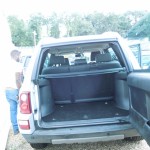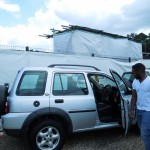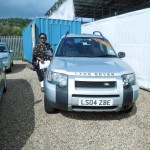Africa’s economic prosperity and security took top billing at last week’s first ever US-Africa Leaders Summit in Washington, D.C., which the White House said would build on President Barack’s Obama’s trip to Africa in 2013 and strengthen ties between the US “and one of the world’s most dynamic and fastest growing regions”.
During the three-day gathering, Mr. Obama announced new trade and investment deals worth $33 billion, which he said would “help spur African development and support tens of thousands of American jobs”.
He promised to “continue to work with Congress to achieve a seamless and long-term renewal of the African Growth and Opportunity Act”, which allows certain goods from Africa to enter the US duty-free.
“We agreed that Africa’s growth depends, first and foremost, on continued reforms in Africa, by Africans. The leaders here pledged to step up efforts to pursue reforms that attract investment, reduce barriers that stifle trade — especially between African countries — and to promote regional integration.
“And as I announced yesterday, the United States will increase our support to help build Africa’s capacity to trade with itself and with the world,” Mr. Obama said at yesterday’s closing press conference.
He went on: “Ultimately, Africa’s prosperity depends on Africa’s greatest resource — its people. And I’ve been very encouraged by the desire of leaders here to partner with us in supporting young entrepreneurs, including through our Young African Leaders Initiative.
“I think there’s an increasing recognition that if countries are going to reach their full economic potential, then they have to invest in women — their education, their skills, and protect them from gender-based violence.
“And that was a topic of conversation this afternoon. And this week the United States announced a range of initiatives to help empower women across Africa,” Mr. Obama said.
The leaders also agreed to step up their efforts to counter corruption, which Mr. Obama said “costs African economies tens of billions of dollars every year — money that ought to be invested in the people of Africa”.
He added: “Several leaders raised the idea of a new partnership to combat illicit finance, and there was widespread agreement. So we decided to convene our experts and develop an action plan to promote the transparency that is essential to economic growth.”
According to Washington-based Global Financial Integrity research estimates, illicit financial outflows cost African economies $55.6 billion per year from 2002-2011 (the most recent decade for which comprehensive data is available).
GFI’s latest global analysis found that these illicit outflows sapped 5.7 per cent of GDP from sub-Saharan Africa over the last decade, more than any other region in the developing world.
Most alarmingly outflows from sub-Saharan Africa were found to be growing at an average inflation-adjusted rate of more than 20 per cent per year, underscoring the urgency with which policymakers should address illicit financial flows, according to GFI.
The leaders agreed that good governance was important for economic growth and free societies.
“Some African nations are making impressive progress. But we see troubling restrictions on universal rights,” Mr. Obama said.
“So today was an opportunity to highlight the importance of rule of law, open and accountable institutions, strong civil societies, and protection of human rights for all citizens and all communities.
“And I made the point during our discussion that nations that uphold these rights and principles will ultimately be more prosperous and more economically successful,” Mr Obama said.
Strengthening US-Africa security cooperation was also top of the agenda, as Washington pushes for action against common threats, from terrorism to human trafficking.
Mr. Obama said: “We’re launching a new Security Governance Initiative to help our African countries continue to build strong, professional security forces to provide for their own security. And we’re starting with Kenya, Niger, Mali, Nigeria, Ghana and Tunisia.”
He said that during discussions West African leaders stressed the need to increase their capacity to respond to crises.
In this regard the US will launch a new effort to boost the region’s early warning and response network and increase its capacity ability to share information about emerging crises.
There was also agreement on significant new investments in African peacekeeping, with the US providing extra equipment to African peacekeepers in Somalia and the Central African Republic.
“We will support the African Union’s efforts to strengthen its peacekeeping institutions. And most importantly, we’re launching a new African peacekeeping rapid response partnership with the goal of quickly deploying African peacekeepers in support of U.N. or AU missions,” Mr. Obama said
“And we’ll join with six countries that in recent years have demonstrated a track record as peacekeepers — Ghana, Senegal, Rwanda, Tanzania, Ethiopia and Uganda. And we’re going to invite countries beyond Africa to join us in supporting this effort, because the entire world has a stake in the success of peacekeeping in Africa,” he added.
Mr. Obama announced that the Summit, the largest gathering any US president has held with African heads of state and governments, would be a recurring event.






